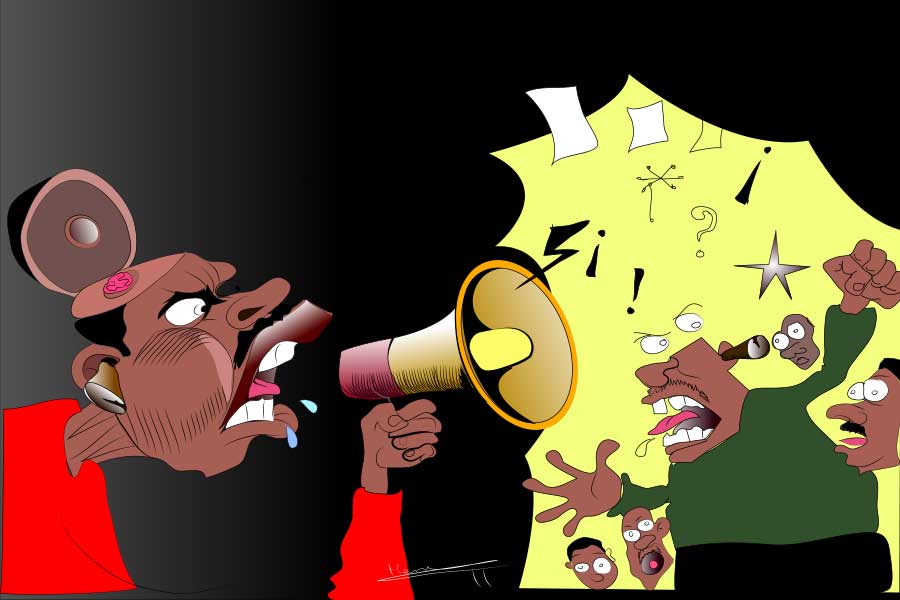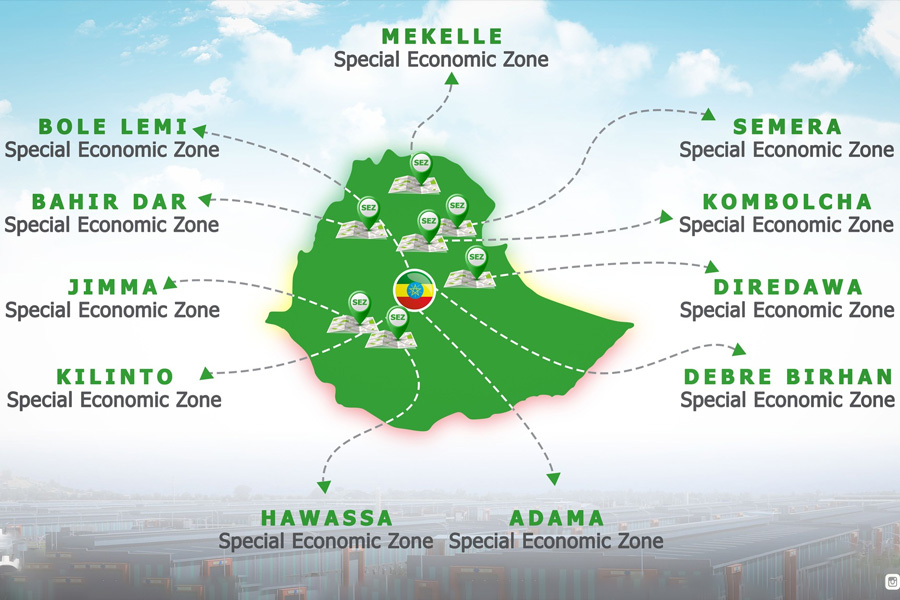
Editorial | Aug 10,2019
Jan 23 , 2021
By Asegid Getachew
Few things could be said to be as prevalent in society as "groupthink," whether in Ethiopia or democratically mature countries such as the United States. It affects young and old, male and female, healthy and infirm, all equally, and contributes to breakdown in societal communication.
Jerry B. Harvey wrote about a form of groupthink in a now famous essay, "The Abilene Paradox: The Management of Agreement" in 1974. The article has since been used in academic courses and training sessions that focus on group decision making. It also introduced the term Abilene Paradox to the discourse.
The author starts by setting the scene where four close family members enjoy the company of one another despite a searing heat and a windy afternoon. The comfort of the afternoon, however, only lasted until one of them suddenly asked the group to venture to a place called Abilene, dozens of miles from home, to have dinner at a cafeteria. One by one, the other family members buy the idea of the trip, and off they go to Abilene. Boiling heat, a brutal sandstorm and a terrible meal at the cafeteria make the journey dreadful.
The members of the family come back home only to recognise that the trip was in no one’s best interest. All of them start blaming and recriminating one another saying that they decided to do it for fear of disappointing the other. Each one of them complained that had it not been for the other members of the family, staying home would have been the better choice.
This is a case of paradox, because four individuals are voluntarily participating in a decision-making environment whose premise negates the very purpose they stand for.
Dysfunctional group decision making is dominated by groupthink, facilitated through an inability to manage agreement, that lures members of the group into making an ineffective decision without evaluating various alternatives. Such a decision making pursuit fails to manage agreements among groups and leads to an outcome that is antithetical to the objectives the members hope to achieve.
Harvey indicates that individuals party to such decision making privately agree on what they want and the means to achieve it. They also fail to accurately communicate what they want to the group. The group then uses such inaccurate information to make a decision. And as any reasonable person might expect, the decision will not satisfy the members the group. Members then start to blame others for the undesired outcome. Most importantly, the group will fall into the vicious circle of repeating the same paradox without addressing the main issue at hand: the management of agreement.
We all have ventured into just such a treacherous journey and gotten trapped in the paradox. We may have wanted to appease a friend, not wanted to be left alone or were eager to avoid the potential sanction that comes from saying “No”.
One of the major strategies to avoid falling into this trap is to recognise that decision making is not about reaching a unanimous agreement on an issue. Rather it is about carefully evaluating diverse viewpoints (alternatives) on the basis of relevant criteria and selecting the one that best fulfills our objectives.
A member to a group decision-making process should recognise that the viewpoints, opinions and suggestions they put on the table are valuable input to the group's effort to achieve something tangible. The idea one puts forth in such situations may potentially help the group from suffering the agony of an undesired outcome. It also saves the precious time and energy that can potentially be used to undertake other productive activities.
Management of agreement to avoid groupthink would especially come in handy in our national discourse, where each political group has built an echo chamber around themselves. This makes it impossible to consider better options and prevents the country from coming up with constructive ideas.
PUBLISHED ON
Jan 23,2021 [ VOL
21 , NO
1082]


Editorial | Aug 10,2019

Radar | Dec 08,2024

Life Matters | Apr 25,2020

Fortune News | Jan 02,2021

Radar | Oct 10,2020

Viewpoints | Apr 20,2020

Viewpoints | Apr 09,2022

Radar | Jan 16,2021

Fortune News | Jun 03,2023

Viewpoints | Sep 04,2021

My Opinion | 132272 Views | Aug 14,2021

My Opinion | 128692 Views | Aug 21,2021

My Opinion | 126600 Views | Sep 10,2021

My Opinion | 124206 Views | Aug 07,2021





Dec 22 , 2024 . By TIZITA SHEWAFERAW
Charged with transforming colossal state-owned enterprises into modern and competitiv...

Aug 18 , 2024 . By AKSAH ITALO
Although predictable Yonas Zerihun's job in the ride-hailing service is not immune to...

Jul 28 , 2024 . By TIZITA SHEWAFERAW
Unhabitual, perhaps too many, Samuel Gebreyohannes, 38, used to occasionally enjoy a couple of beers at breakfast. However, he recently swit...

Jul 13 , 2024 . By AKSAH ITALO
Investors who rely on tractors, trucks, and field vehicles for commuting, transporting commodities, and f...

Jul 12 , 2025
Political leaders and their policy advisors often promise great leaps forward, yet th...

Jul 5 , 2025
Six years ago, Ethiopia was the darling of international liberal commentators. A year...

Jun 28 , 2025
Meseret Damtie, the assertive auditor general, has never been shy about naming names...

Jun 21 , 2025
A well-worn adage says, “Budget is not destiny, but it is direction.” Examining t...

Jul 13 , 2025 . By YITBAREK GETACHEW
The Addis Abeba City Revenue Bureau has introduced a new directive set to reshape how...

Jul 13 , 2025 . By BEZAWIT HULUAGER
Addis Abeba has approved a record 350 billion Br budget for the 2025/26 fiscal year,...

Jul 13 , 2025 . By RUTH BERHANU
The Addis Abeba Revenue Bureau has scrapped a value-added tax (VAT) on unprocessed ve...

Jul 13 , 2025 . By NAHOM AYELE
Federal lawmakers have finally brought closure to a protracted and contentious tax de...